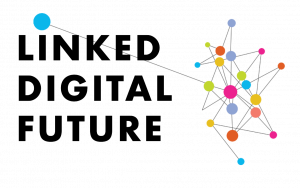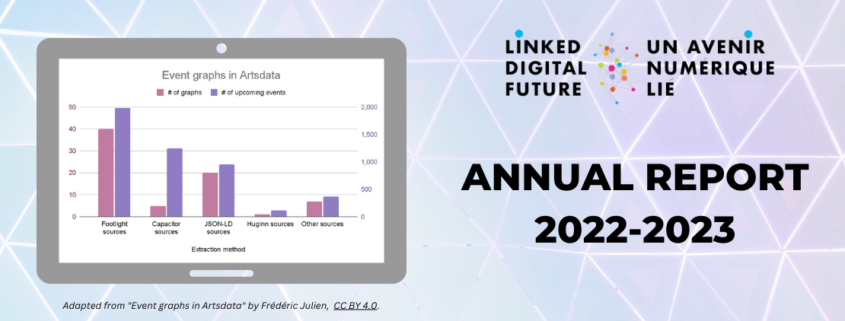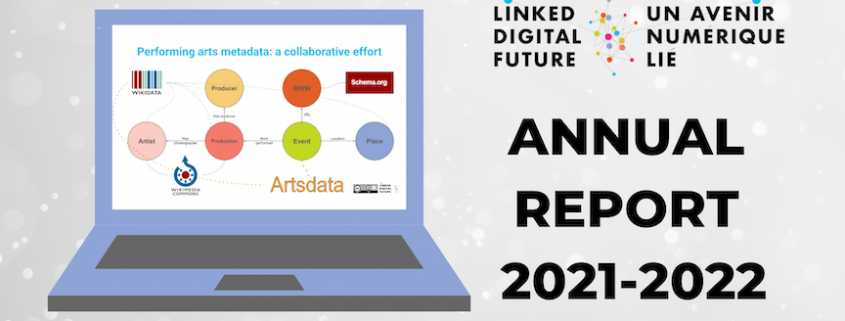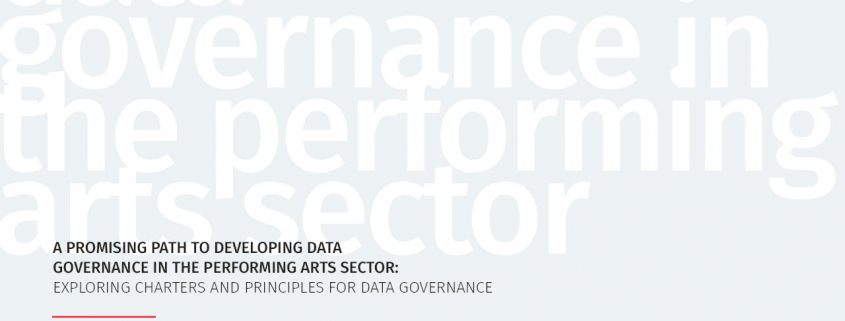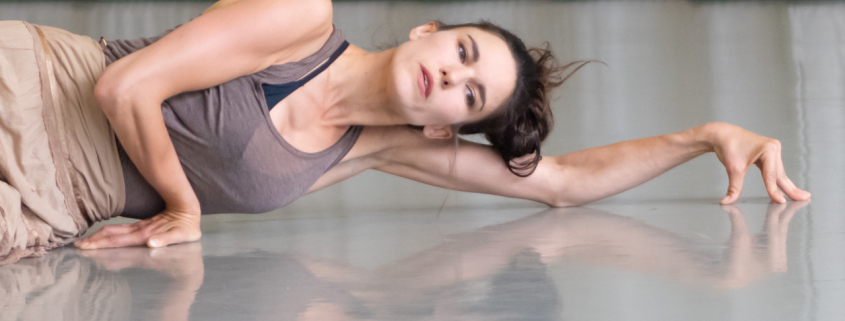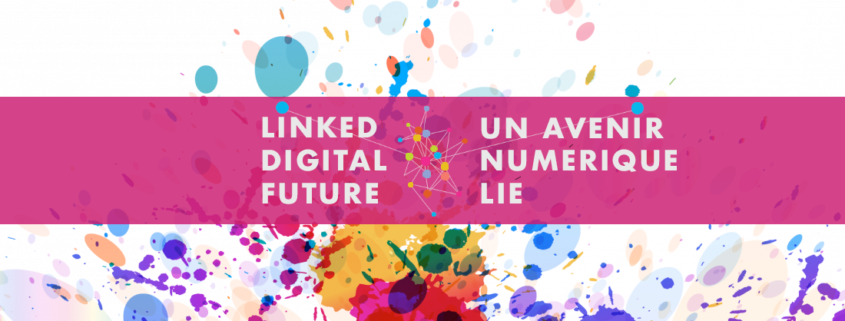The Linked Digital Future initiative was launched in 2018 to promote the discoverability of the live performance sector. After just over four years, has this discoverability challenge remained just as critical? Or has increasingly advanced Artificial Intelligence (AI) solved the problem for us?
Read more2021-2022 was another great year for the Linked Digital Future Initiative.
In spite (or because) of the pandemic, we achieved significant progress in the production of open metadata about named entities in the last year. The number of artists in the Artsdata knowledge graph increased by 108%. The number of organizations, by 163%. And more data population activities are underway to increase the amount of data about places by at least as much. Moreover, we are finally looking forward to shifting the focus back to event metadata now that the sector is fully reopened after two years of running closures.
Metatada means “data about the data”. In the performing arts, metadata can provide useful descriptive information about artists, organizations, venues and performances.
Why is Wikimedia Commons a discoverability opportunity for the performing arts?
In a previous post pointing out the essential steps to a productive digital presence for the performing arts, we highlighted as a best practice the sharing of images in the Wikimedia Commons media library, a sister project of Wikipedia and Wikidata, under a free to use Creative Commons licence.
This practice deserves our attention because even if it may seem complex or disorienting, it is above all an extraordinary way to benefit from the positive bias of search engines.
We’ll be looking at Wikimedia Commons from three different angles.
Read moreAuthors: Ayesha Zamudio-Vazquez (Open North), Megan Wylie (Open North)
A summary of what we heard from our speakers and you to continue this work on data governance of open linked metadata.
Thank you to all of the participants who joined us on November 8th, 2021 for the webinar: Data Governance in the Performing Arts: Findings and Dialogue. The discussion was so rich that we want to offer you a recap.
Read more“Who is able to share what type of data with whom?” and “Who should have authority over which data?”
Since CAPACOA started delving into digital transformation as a means of fostering data re-use in the performing arts, these two questions have kept surfacing. In July 2020, along with Open North, we undertook exploratory activities to seek answers to these and other data governance questions. A year later, we are happy to launch the report “A Promising Path to Developing Data Governance in the Performing Arts Sector”.
Read moreAs part of the Linked Digital Future initiative, CAPACOA has been exploring how Indigenous knowledge can be adequately and respectfully represented over the Web of data. Most recently, we undertook one-on-one consultations with Indigenous artists to understand what work needs to be done to support respectful representation in Wikidata.
Read moreCAPACOA seeks service providers to undertake exploratory activities for the development of a governance framework for open and shared data in the performing arts as part of the Linked Digital Future initiative.
Read moreChoose a different language:
Categories
Contact Us
CAPACOA
17 York street, suite 200
Ottawa, Ontario
Canada K1N 5S7
Tel: 613-562-3515, ext. 3
Contact Form
Subscribe
Website design by OCTAGRAM.


All text on this website is licensed under a Creative Commons Attribution 4.0 International License.
